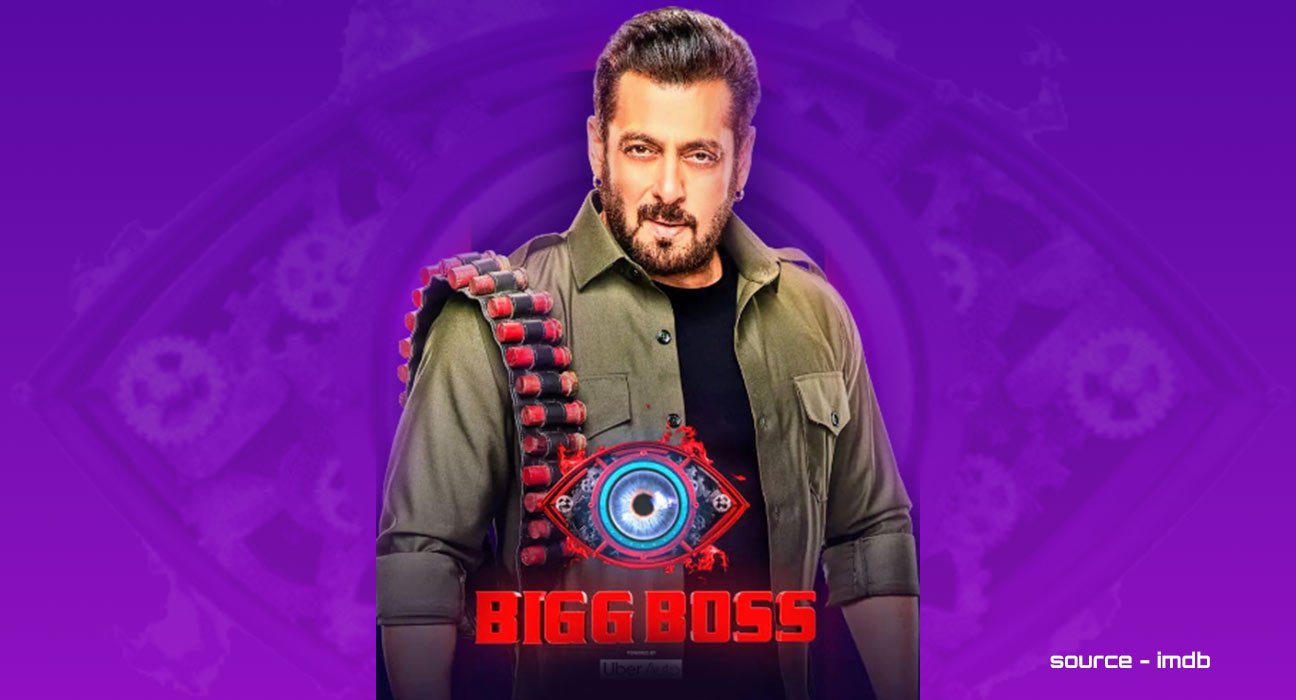Reality television is a popular genre in the telly world featuring unscripted real-life occurrences. The sub-genres include competitions, infotainment, entertainment, adventure, romance, documentaries and so on. Indian viewers have a strong preference for entertainment-based reality shows, and Bigg Boss consistently ranks among the top programmes.
Read More: Reality Shows: Psychological Impact on Participant Children
It is an Indianised version of a Netherlands-based show called Big Brother, owned by Endemol Shine Group. Hosted by one of the most famous actors and producers, Salman Khan, it has garnered so much attention and love over all these years! It has 16 seasons so far, and the shows air in as many as seven Indian languages besides Hindi. So what could be some underlying reasons for this fascination? Why do people love watching Bigg Boss so much?
Need for Drama and Entertainment
At its core, Bigg Boss is like a social experiment, involving contestants placed in an isolating set-up under the same roof and under observation through surveillance. Remember the Bigg Boss’ eye? The show is fueled by conflict, rivalry and emotional expression, all of which are integral to human nature. We as viewers are drawn to the raw, unfiltered emotions displayed by the contestants as they live through friendships, love, and betrayals. We, humans, have a literal need for drama and entertainment, and experiencing the suspense of an unscripted plot gives us similar satisfaction.
According to counselling psychologist, Anushtha Mishra, “As human beings, we’re naturally drawn to drama, and reality TV like Big Boss certainly delivers. It offers a mix of intense, albeit sometimes unrealistic, drama that keeps viewers hooked. Now, in terms of its impact on mental health, there are several potential issues to consider. The heightened intensity of the drama in Big Boss can lead viewers to internalize and personalize the emotions portrayed on screen, a phenomenon known as vicarious emotions. This can significantly affect mental well-being, as viewers may find themselves experiencing emotions from the show as if they were their own, leading to confusion and difficulty in understanding their feelings.”
Contestants— The Heart of The Show
What makes a reality show worth watching are the contestants themselves! Bigg Boss provides an equal platform to everyone- from budding artists to well-known public figures. For fans, witnessing their favourite celebrity’s journey on the show is an emotional experience at a deep level. Supporting them throughout their journey through voting, social media engagement or simply cheering becomes a priority for people. With their charisma and authenticity, even the less-known contestants make a place in the audience’s hearts. Other than this, the interactions between people from diverse backgrounds forming unexpected alliances keep the viewers engaged throughout the season.
Read More: Impact of Media Violence on Mental Health
The Social Aspect
It’s not just about drama and entertainment. During its broadcasting, Bigg Boss often becomes a common topic of conversation during social interactions. Whether it’s discussing the latest episode with friends or liking the edits of their favourite duos or trios on social media, viewers enjoy interacting with others who share a similar passion for the programme. Bigg Boss becomes more than just a TV show- it becomes a shared experience that helps build connections and community, thereby adding to the social aspect.
Read More: The Psychological Impact of the TV Show “Friends”
Psychological Perspectives: Social Comparison and Parasocial Relationships
Some additional factors responsible for this obsession are the interesting psychological phenomena of social comparisons and parasocial relationships. Maria Cartagena, a Psychologist, pointed out that viewers tend to identify with contestants of reality shows. By identification, what she meant is, that we may evaluate our own lives and behaviours in comparison to those of the contestants, imagining ourselves in similar situations and thinking about how we would react.
Humans are also pulled into parasocial relationships. These are one-sided connections that people form with media personalities. Even though we know that our relationships with people on the other side of the screen are not real, this doesn’t hold us back from reacting as if they really are. Such an act of emotional investment leading to a sense of relatability makes audiences more drawn towards a reality show as interesting as Bigg Boss.
According to psychologist, Kuldeep Yadav, “From an entertainment perspective, it’s quite good. However, if we look at it in terms of mental well-being, it’s very manipulative. Secondly, it greatly disturbs interpersonal relationships. It tends to trigger negative emotions excessively. For instance, the characters that people like tend to represent negative emotions aggressively. They create negative conditions for other people. Friendships start to break, and relationships start to break with those whom people start to like. So, it becomes manipulative.”
Read More: Why do people love K-dramas?
In essence, the popularity of Bigg Boss lies in its ability to appeal to basic human tendencies. From our innate need for drama and entertainment to our desire for human connection and social interaction, the show offers experiences that resonate with us on a deep psychological level. The emotional commitment and interpersonal relationships of the contestants mirror our innate tendency for empathy and identification with others. Due to the reflection of these core elements of human behaviour, Bigg Boss is more than a mere television show and has become a cultural phenomenon that continues to receive admiration season after season.
References +
- Usrevisor. (2023, November 2). Beyond the gossip: Why reality TV is so popular. Aceprensa.https://www.aceprensa.com/english/beyond-the-gossip-why-reality-tv-is-so-popular
- Vinney, C., PhD. (2022, November 21). What is a parasocial relationship? Verywell Mind.https://www.verywellmind.com/what-is-a-parasocial-relationship-5210770
